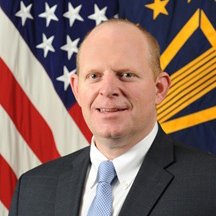
GovSpeak: Words to live (or die) by…
Are your stakeholders agile enough to reach out for the low-hanging fruit? Senior Correspondent Mike Causey claims he knows what that means.
April Fools’ Day may be the perfect time to check out some of the buzzwords and catchphrases currently being used (some would say abused) in government and the corporate world.
After complaining about terms like “reach out,” yesterday’s Federal Report asked readers to reach (or retch) out with their unfavorites. Many did. And it’s fun reading, especially today. Like so:
Sarah at the Centers for Disease Control and Prevention in Atlanta fired the first volley. She said “Fun article. I shared it with several colleagues by reaching out in order to improve our transparency and agility in writing and editing. I asked they respond by the end of the day at COB in order to partner more collaboratively with our stakeholders.
Exactly!
I think.
C.S. cast these two votes for words to ban for their overuse or vagueness:
“(1) CUSTOMER. We have “internal” and “external” customers. Everybody seems to be a customer these days, and we want to target our messages to them. Are we meeting our customers’ needs? What’s our customers’ WIFIMs? How can we drive traffic to our microsites to improve customer engagement, reduce the bounce rate and increase the metrics?
“(2) COLLABORATE. I don’t talk to people anymore; I collaborate with them. It used to be collaboration was a bad thing, especially when it came to an enemy force or hostile entity. Now, I willingly “join together” with various internal customers to create campaigns to generate synergy amongst our external customers toward a measurable outcome.
“On another front — have you ever read an award citation and wonder what the person was getting recognized for? Too often the action is drowning in platitudes and hyperbole that it makes it hard to sort out what exactly the person did. We do know that the person made a “positive difference” by having a ‘results-driven’ attitude and displaying ‘exemplary leadership.’ Would you expect anything less?”
Michael with the Small Business Administration said, “One phrase I’ve heard with increasing frequency this year is agencies are offering trainings with an extra S.” OK, moving on…
Roberta at the Internal Revenue Service said she’s tired of people thinking outside the box, which is something to think about.
Carl with the Smithsonian Institution said, “Listening and watching the news you hear this all the time. Do these people listen to themselves speak? In every other sentence somebody says you know are they questioning themselves or their listeners. And he’s right, you know?
Shawn of the IRS has a love/hate/mostly hate relationship with terms like future state and concept of operations. as in if we don’t get some funding soon, our future state will be defunct and our concept of operations will be a busy signal.
Joe M., from the Labor Department votes to put a monthly limit on the number of times people can refer to takeaways … working it … and on my radar.
More to come. We’re going to shake the tree for the low-hanging fruit.
Sorry.
Nearly Useless Factoid
By Michael O’Connell
Ever wonder why people say “roger” at the end of a radio communication? “Roger” was the former “phonetic” for the letter “R”, which stood for “received and understood”. “R” is now “Romeo”.
Bonus NUF: In the Royal Air Force, “Roger Wilco” stood for “Received, will cooperate”.
Source: The Guardian
Copyright © 2024 Federal News Network. All rights reserved. This website is not intended for users located within the European Economic Area.
Mike Causey is senior correspondent for Federal News Network and writes his daily Federal Report column on federal employees’ pay, benefits and retirement.
Follow @mcauseyWFED





